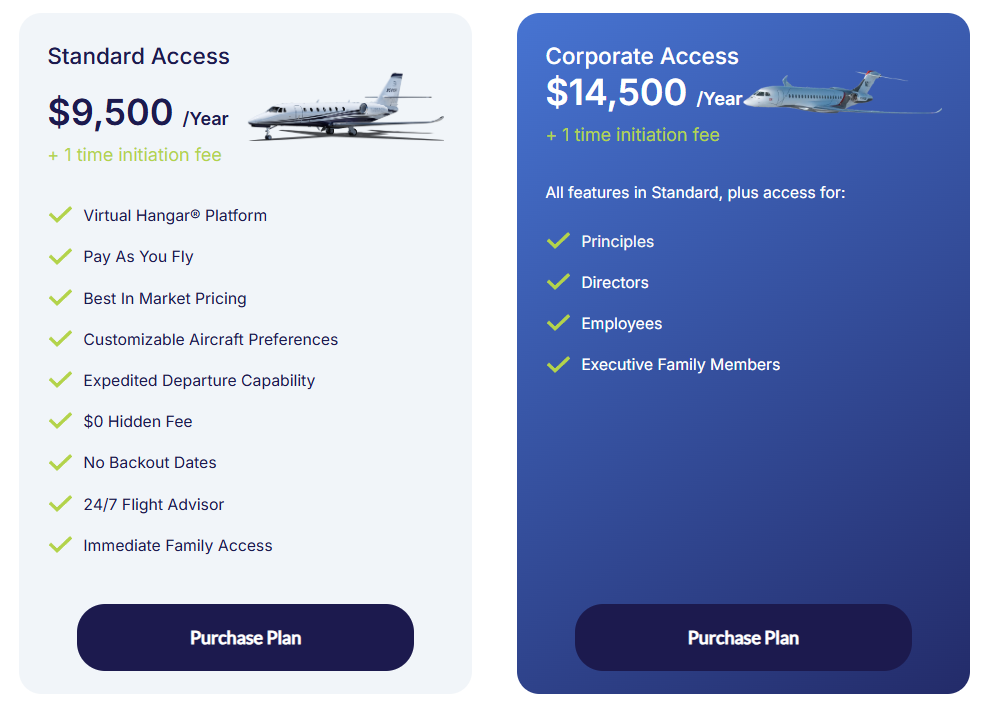Introduction
The world of private aviation is changing at supersonic speed—literally and figuratively. In 2025, private flyers are no longer satisfied with luxury alone; they want speed, personalization, transparency, and tech-driven convenience. As someone who has spent over a decade studying the evolution of this industry, I believe we are at a major inflection point.
The future of private jet booking isn’t just about flying faster—it’s about booking smarter. And companies like Virtual Hangar® are setting the standard for what that future looks like.
Where We Are Today: 2025 Snapshot
Private jet travel has become more accessible than ever. Between pandemic-era behavior shifts, time-saving demands, and rising dissatisfaction with commercial aviation, the private jet sector is booming. But the way customers are booking is evolving even faster than the aircraft themselves.
Booking through brokers and concierge firms is fading fast. Static jet card programs are declining, and legacy platforms can’t keep up with the digital expectations of today’s traveler.
In their place, tech-forward platforms like Virtual Hangar® are leading the next generation of private flight solutions—with no large upfront deposits and a fully AI-powered booking system.

The Top Private Jet Booking Trends Shaping the Future
1. AI Will Power Every Booking Decision
Artificial intelligence is already disrupting the way people book jets. By 2026, I predict that 90% of all private flight searches will begin and end on platforms powered by AI.
Virtual Hangar® already uses AI to:
- Suggest optimized aircraft per route and passenger need
- Predict market pricing based on demand and seasonal trends
- Identify and offer discounted “empty leg” flights instantly
This eliminates human error, reduces decision fatigue, and enables better deals in real-time.
2. Dynamic Pricing Will Replace Static Jet Cards
Jet cards are falling out of favor. Prepaying for blocks of hours at fixed rates no longer aligns with how people travel.

Instead, dynamic pricing models, like those used by Virtual Hangar®, are becoming the norm. Flyers want to:
- See pricing transparency before they book
- Avoid hidden markups
- Only pay for what they use
This trend will continue until jet cards become a niche product rather than an industry standard.
3. Instant Booking Will Become the Norm
The average time to book a private jet via traditional channels is still over 24 hours. That’s changing.
Virtual Hangar has already cut this time down to under 1 hour—from search to confirmation. Expect other players to follow suit or fall behind. Millennials and Gen Z high-earners are demanding “one-click” convenience, and they won’t wait for quotes or callbacks.
4. On-Demand Memberships Will Replace Contracts
The subscription economy has redefined customer expectations. Flyers now want on-demand access without long-term, costly commitments.
Virtual Hangar® ’s cheap standard and corporate annual membership subscriptions will become the dominant model. Jet cards and legacy memberships are increasingly viewed as restrictive and outdated.
What the Industry Must Embrace Next In The Future
To stay relevant, private jet companies must begin thinking like tech companies. That means:
- Investing in real-time data infrastructure
- Embracing mobile-first platforms
- Offering personalization at scale
- Reducing overhead and passing savings to customers
Failure to adapt means losing to smarter, leaner, faster-moving platforms like Virtual Hangar®.
Final Thoughts: Virtual Hangar Is Already Building Tomorrow’s Booking Experience
If you want to see what the future of private jet booking looks like, visit https://virtualhangar.com.
Virtual Hangar® isn’t just responding to these trends—it’s creating them. From real-time bookings and predictive pricing to smart aircraft matching and pilot transparency, the platform delivers what tomorrow’s flyers demand today.
Whether you’re an industry insider, an operator, or a luxury traveler, one thing is clear: the future of private aviation is digital, dynamic, and powered by intelligent platforms and Virtual Hangar® is a flying point.

About the Author
Vincent Chu is the Editor-in-Chief of Virtual Hangar Media, where he leads through leadership and industry reporting on private aviation, emerging flight technologies, and the future of luxury air travel. With over a decade of experience in aviation journalism and charter innovation, Vincent has helped shape the conversation around AI, dynamic pricing, and on-demand jet platforms.
Published: April 9, 2025
About The Team: https://virtualhangarmedia.com/about/
Website: https://virtualhangarmedia.com/

